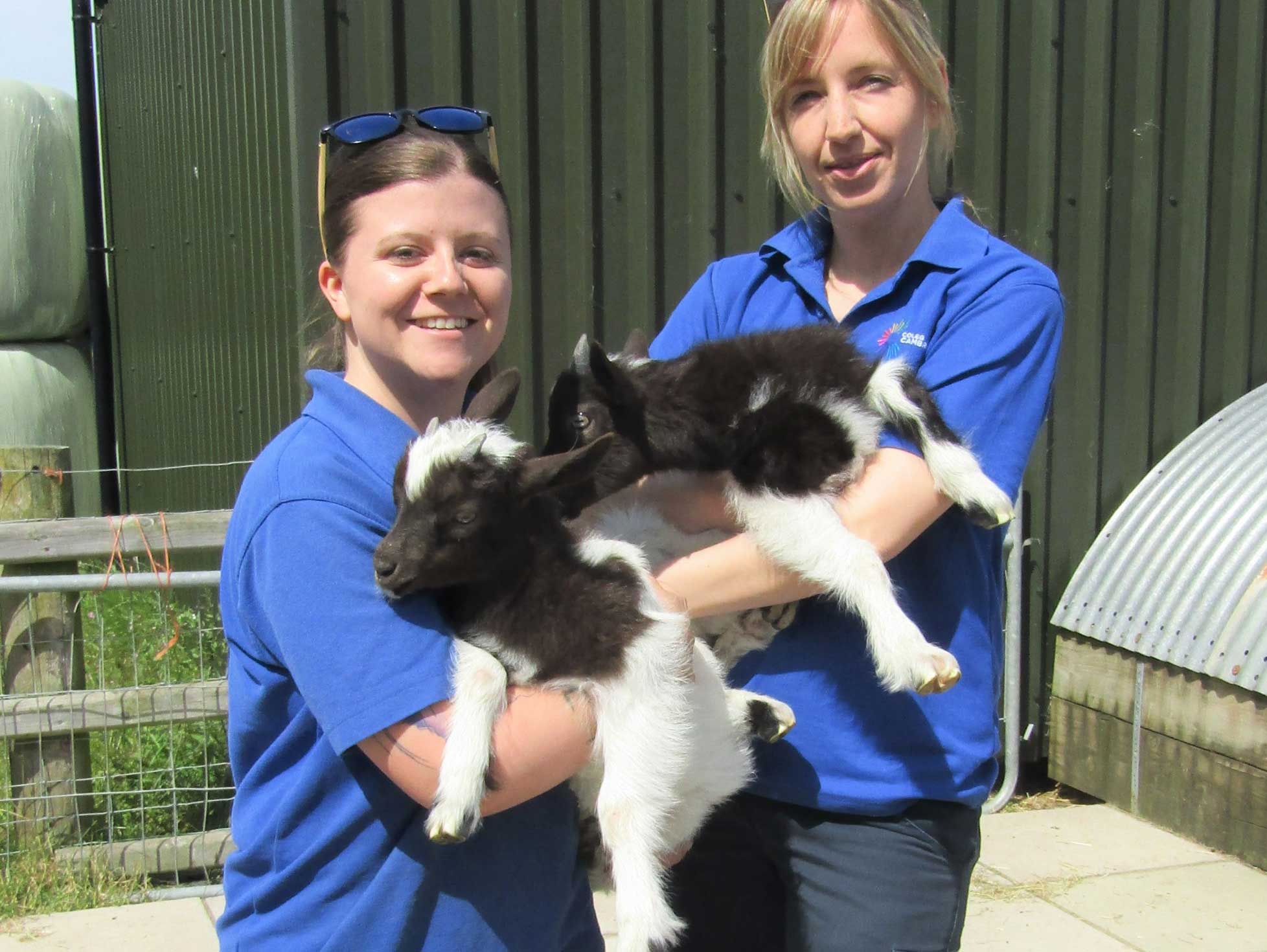COLEG CAMBRIA is helping to preserve the oldest and rarest species of goat in the UK.
As recently as 2010 the Rare Breeds Survival Trust listed the Bagot goat at ‘critically endangered’ because there were fewer than a hundred breeding nannies in the country.
That classification was changed to ‘vulnerable’ in the following years, which was a positive step, though the Bagot is still one of the most uncommon animals on these shores.
Coleg Cambria is trying to change that and is rearing the livestock at its Northop campus.
Amazingly, six kids have been born at the Flintshire site this year alone.
Animal practitioner and lecturer Hayley Burkey revealed the college now has 20 of the goats – including two on loan to a nearby country park – and says the numbers look set to grow further.
“We have only bred Bagot goats here in Northop since 2012, and at that time there were just three of them,” said Hayley.
“We now have 20 and had more over the years but send them to other animal centres and colleges to spread the population and ensure other students are able to learn from them and help preserve these amazing animals.”
Cambria was in the news earlier this year when it supplied Tannaghmore Rare Breeds Farm in Northern Ireland with two Bagot nannies and a billy, ensuring the breed’s biosecurity by having a herd off the mainland.
They also support the Bagot Goat Society and take popular goats Shirley and Scarlett to the Smallholding and Countryside Festival at the Royal Welsh Showground in Llanelwedd every year to promote the animals.
As well as Bagot goats the college also breeds rare Hill Radnor Sheep and has a wide range of animals on-site, from reptiles and rodents to rabbits, birds, aquatics, marmosets and horses.
Vivenne Martin, Assistant Principal for Land-based Studies and Additional Learning Needs at Coleg Cambria, says their courses are becoming more popular and the hands-on nature of development and learning at Northop is a big reason why.
“Our students are not just sat in a classroom they are out here among the animals, caring for them and experiencing the day-to-day needs and demands of these creatures for themselves,” she said.
“To be around Bagot goats and other rare breeds is special; they are usually quite feral and wild animals but because the learners look after them and feed them they’re quite happy to be brushed and jump up and are playful when they see them.
“The students observe them, do health checks, feed and clean them, before moving on to concentrate more on the medical side, preventative treatment and behavioural studies.
“The Bagot goats are unique and very important to us. We will continue to care for them and help to build up the population of these amazing animals.”
For more on the wide range of Animal Care courses at Coleg Cambria, visit www.cambria.ac.uk
NOTES:
The Bagot is believed to be Britain’s oldest breed of goat with a documented ancestry. The first recorded account of the breed appears in historical documents from 1389, when Sir John Bagot was known to be the keeper of the original herd at Blithfield, his Staffordshire estate in the English Midlands. The Bagot goat was originally managed as a feral and semi-feral parkland breed in Bagots Park, just three miles from Blithfield Hall. They proved to be extremely self-reliant, which has ensured their continued survival over many centuries.
Recents Posts
Staying put
The staycation has been growing in popularity for a [...]
The great day out!
August is here and along with the sunshine (we’re [...]
Coleg Cambria and LEAF Education launch annual search for innovative schools
LEAF Education Launches Search for Innovation School of the Year [...]
Angus to feature in national art exhibition
A talented young artist at Rydal Penrhos will have [...]




